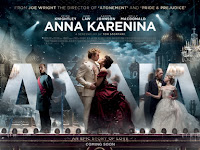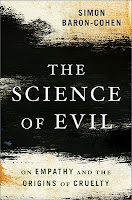The
other day I was on the bus with my wife and son when a senior citizen
started chatting with us. He made some half-witty remarks regarding
fishburgers and added offhandedly that a good son ought to always listen to his
mother. Then my son in his curious innocence or unblemished honesty
asked the elderly man if he had a Mommy too.
The
man sighed and said that his mother was looking down from heaven as
we spoke. Thank God, the matter was settled there and then, and my
son did not ask any more probing questions on the uncomfortable topic
of death and the matter of the possibility (or non-possibility) of an afterlife.
Three
different generations were interacting and clashing at that moment.
We had a four-year-old child, a middle-aged couple (my wife and I)
and an unknown elderly man (presumably in his late seventies). In
fact, our combination comprised the quintessential arc of life. We
come into the world tabula rasa (clean-slated),
flourish (to use a Greek term for the highest stage of personal
accomplishment) and become old and die.
In
my mind, I fast-forwarded this scene about say forty years into the
future. And I saw myself as the elderly man facing equally challenging
questions by another four-year-old. Essentially such was not only the
cycle of life, but it was inevitable. Time, like a gravitational
force, exerts and wields its power and influence on us, and just like
gravity, it acts upon us at all times (no pun intended); it is
hardly perceptible, almost invisible pushing us hither and thither in
different directions.
We
are eventually subdued by its force; whether we fully accept the fact
of our mortality or try to resist it with all our might and force
within our innermost beings, we will end up losing this battle
against immovable and stern Father Cronus.
The
work of Father Time will become perhaps most visible on our faces.
They will undergo changes, when wrinkles appear and date us the same
time tree trunk circles inform us of the age of a tree. Our hair and
teeth will fall out, and our quest will have only one exit or
destination: death. We cannot cheat our way out of it; the use of
make-up, wigs and false teeth cannot save us from this inescapable
endpoint.
Our
very existence from Day (or, more precisely, Moment) One is measured
by time and
space, in other words, spacetime, which is as tight and closely
associated and inseparable as the two sides of a coin, or the
pervading elements of yin and yang.
The
same way we cannot escape space, there is no dodging time. We are
caught in the webs of time; while in space we can at least move
around a little, by foot or in cars and planes, time can be only counted and
measured but not traveled in. There might be at best minor
adjustments, such as the artificial daylight saving time or the
physical trip across different time zones with its subsequent lagging
and time-adjusting jet lags. But that is about all we can do with
time.
Sure,
one might say, we are all mortals, and that includes the syllogistic
and real version of Socrates; our days are numbered, counted
and accounted for and sooner or later we will reach the end of our
existence. That is a truism and anyone who believes otherwise may be
merely a wishful thinking escapist fool.
But
what I find interesting here is that time has us firmly rooted to the
ground. This is not just about its endpoint death, but the fixed
grasp that time has on us, and all we can do is circle around its
gravitational wheel like a cog in a machine, like the planets
revolving around the sun.
This
loop keeps ticking at all times, and it starts off as a loose noose
around our neck, imperceptibly but steadily tightening with each
tick. The moment is gone quicker than we think, faster than we can
shout Amen or any other word for that matter.
It seems I was a lonely
teen just yesterday, a proud father today and an old toothless man
tomorrow. If this seems a little bleak and depressing, one could take
my son's “game” analogy that we are rather moving through the
different levels and stages of a lifetime.
I
like Julian Barbour's idea of Platonia, the illusion of time, the
claim that science cannot prove or pin down the existence of time,
that there is no definite or connecting flow or link between
individual moments. I see also very little connection between the
teen and the adult, and my past does seem like a distant and vague
dream.
However,
time (or whatever it is) is writing its message across my body, is
pushing (bullying?) me forward, is not letting me go until ...
my time has come.
If
there is an afterlife (which I think possible), then there might be
another eternal load of time dumped upon us. In the meantime
(!) and because we do not have an endless supply of time and world, we can follow Andrew Marvell's marvelous advice to his “Coy Mistress”: Since we cannot make time stop or stand still, we better
make it run or pass more quickly. At best, we can only enjoy
the time we are given, make the best and most of it all; at worst, we
can delude ourselves that the lassos of time will spare us and that we
can get away from its stronghold.






